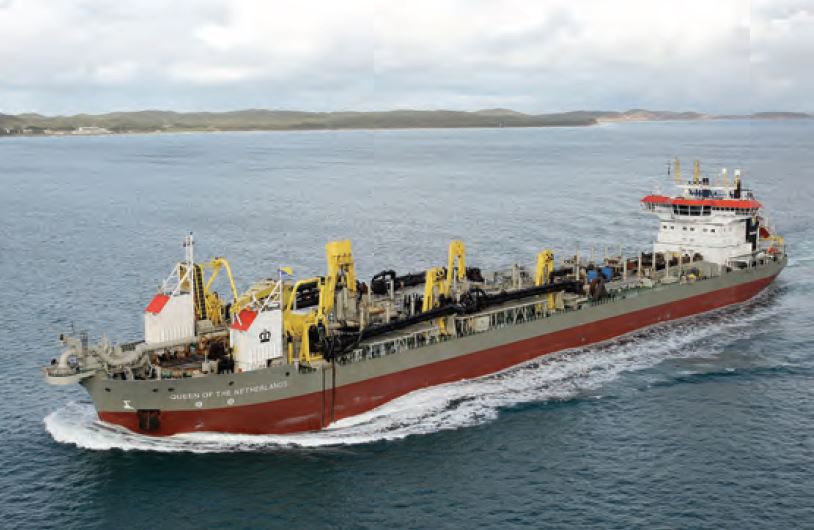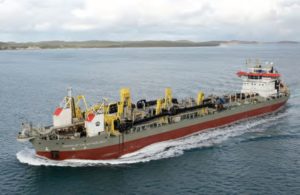Chatham focuses on seabed rare earths research

The Royal Boskalis Group's Queen of the Netherlands dredging ship, when modified, could mine 1.5 million tonnes of seabed phosphate rock. Photo courtesy Royal Boskalis Group.

Chatham Rock Phosphate Limited [NZP-TSXV; CRP-; 3GRE-FSE], based in Wellington, New Zealand, reported that it is commissioning a research project to be undertaken by a local university.
The research will be aimed at separating valuable by-products (including rare earths) that are also contained within the sandy seafloor matrix that contains the rock phosphate deposit. The company is planning an undersea phosphate mining project on the Chatham Rise off the east coast of New Zealand using a dredging process from a ship.
As the proposed recovery process would already bringing these sands up to the vessel there would be no mining cost involved, merely the costs of separating these by-products from the sand before it is returned to the sea-floor. Successful recovery of even a tiny proportion of these by-products could add significantly to our future revenue and profitability prospects and also establish a strategic ocean-floor based asset for New Zealand.
Chris Castle, President and CEO, said that as there is no certainty that any of these rare earths can be recovered, it is not yet appropriate to name the actual elements that the sampling program has determined are present on the sea floor.
